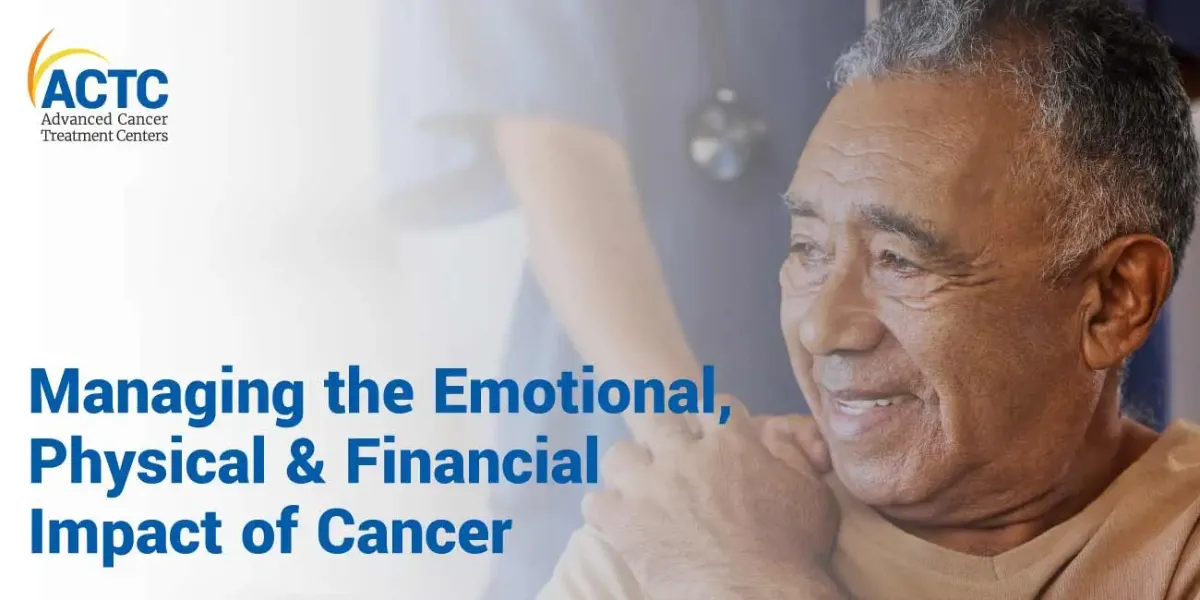A cancer diagnosis can change your life, no matter your age or situation. It affects your body, emotions, and mind in many ways. Cancer and its treatments, like surgery, chemotherapy, or hormone therapy, can cause physical symptoms such as weakness, fatigue, and nausea. At the same time, it can also take a toll on your mental health, leading to feelings of fear, anxiety, and stress. Over time, these emotions can become overwhelming and may even lead to depression.
This article explains how cancer impacts mental health, how to spot signs of depression and anxiety, and tips for coping.
How Cancer Affects Mental Health
Cancer doesn’t just affect the body—it can also deeply impact your emotions and thoughts. Many people with cancer experience:
- Fear: Worry about the future, treatment, or how cancer will affect their lives.
- Anxiety: Feeling restless, irritable, or unable to relax.
- Stress: Struggling to manage the challenges of cancer and treatment.
- Depression: Feeling sad, hopeless, or losing interest in things you once enjoyed.
These feelings are normal, but if they last for a long time or become too intense, they may need attention.
Depression and Cancer
Depression is common in people with cancer. About 1 in 4 people with cancer experience clinical depression. Symptoms of depression include:
- Feeling sad, empty, or hopeless.
- Losing interest in activities you used to enjoy.
- Trouble thinking or concentrating.
- Feeling extremely tired or exhausted.
- Slowed movements or speech.
- Stomach pains or digestive issues.
- Mood swings, agitation, or restlessness.
- Trouble sleeping (insomnia) or sleeping too much.
Depression is more than just feeling sad. If these symptoms last for more than two weeks, it could be depression. Talk to a doctor or therapist for help.
Suicide Prevention
If you or someone you know is in crisis:
- Call 911 or your local emergency number.
- Stay with the person until help arrives.
- Remove anything that could cause harm (like guns, knives, or medications).
- Listen without judging or arguing.
For suicide prevention support, call the National Suicide Prevention Lifeline at 800-273-8255.
Anxiety and Cancer
Anxiety is another common issue for people with cancer. It can range from mild to severe and may include:
- Constant worrying.
- Feeling restless or irritable.
- Trouble concentrating.
- Feeling tense or unable to relax.
Some people with cancer worry about their future, family, finances, or career. In severe cases, anxiety can lead to panic attacks. Signs of a panic attack include:
- Rapid heartbeat.
- Shortness of breath.
- Dizziness or lightheadedness.
- Hot flashes or cold sweats.
Tips for Coping with Cancer, Anxiety, and Depression
Managing mental health while battling cancer can feel overwhelming, but it’s important to take care of your mind as well as your body. Here are some tips:
What NOT to Do:
- Don’t ignore the problem: Ignoring anxiety or depression won’t make it go away.
- Don’t pretend you’re fine: Be honest with yourself and others about how you’re feeling.
- Don’t self-medicate: Avoid using alcohol or drugs to cope. This can make things worse.
What TO Do:
- Accept your feelings: It’s okay to feel sad, scared, or angry. These emotions are normal.
- Talk to someone: Share your thoughts with loved ones or a therapist. Talking can help you process your feelings.
- Focus on physical health: Eat well, rest, and try to stay active. Taking care of your body can help your mind too.
You’re Not Alone
Cancer affects both physical and mental health, but you don’t have to face it alone. By understanding how cancer impacts your mind and body, recognizing the signs of depression and anxiety, and seeking help, you can fight cancer on all fronts. Reach out to loved ones, doctors, or therapists for support—it’s a sign of strength, not weakness.

